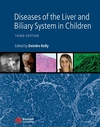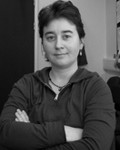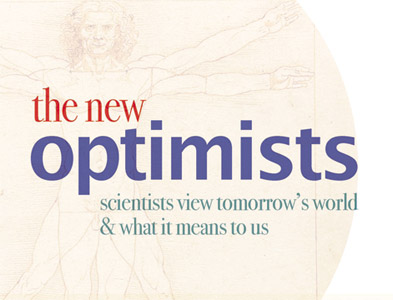People
June 21st, 2010
 Dr Ann Vernallis studies small proteins called cytokines. Although most people will never have heard of them, abnormal increases or decreases in cytokine levels are associated with a variety of diseases. Researchers have been interested in them for years; medical interest really took off when anti-TNF (tumour necrosis factor) treatment was developed for rheumatoid arthritis — an example of the beneficial interplay of basic and clinical sciences.
Dr Ann Vernallis studies small proteins called cytokines. Although most people will never have heard of them, abnormal increases or decreases in cytokine levels are associated with a variety of diseases. Researchers have been interested in them for years; medical interest really took off when anti-TNF (tumour necrosis factor) treatment was developed for rheumatoid arthritis — an example of the beneficial interplay of basic and clinical sciences.
Dr Ann Vernallis is a Lecturer in the School of Life and Health Sciences at the University of Aston. She’s interested in cell signalling. As a post-doctoral fellow, she studied cytokine receptor interactions in the IL-6 family. At Aston, she’s studied the secretion of Leukemia Inhibitory Factor (LIF), the pro-inflammatory activities of lipoteichoic acid from Gram-positive bacteria and cytokine levels in patients with infections. She’s currently working on the anti-inflammatory effects of tetracyclines, and she collaborates on studies of neuron/astrocyte interactions in a neuronal stem cell model.
Tags: ann vernallis, anti-TNF factor, Aston University, cell signalling, cytokines, life sciences, proteins, rheumatoid arthritis
Posted in People, The Ways of Science, Working together | No Comments »
June 21st, 2010
Just how do your cells know what’s particularly you and what’s not-you? How, for all of us, do our cells discriminate between self and non-self?
Or, to put it into the more formal language of immunologists, what is the spectrum of antigens recognised by the peripheral T-cell population?
Such is the important work of Professor Graham Anderson in the School of Immunity and Infection at the University of Birmingham. And it’s complex work, requiring the input from a variety of disciplines, and from clinicians as well as pure researchers — Professor Anderson, for example, monitors how designer organs function in an in vivo setting.
In The New Optimists, Professor Anderson makes the point that it’s this very sociability of science and scientists that leads to a sharing of ideas, a key driver in developing scientific understanding.
Tags: antigens, graham anderson, immunity, immunology, infection, T-cells, University of Birmingham
Posted in People, The Ways of Science, Working together | No Comments »
June 21st, 2010
 The case for blue skies research is made passionately by Elizabeth Oliver-Jones in The New Optimists, and with due cause. Her particular research focuses around the study of early cell interactions in amphibians, about the little-known molecular mechanisms by which vertebrate embryos achieve the myriad complex patterns and cell types found in the adult animal.
The case for blue skies research is made passionately by Elizabeth Oliver-Jones in The New Optimists, and with due cause. Her particular research focuses around the study of early cell interactions in amphibians, about the little-known molecular mechanisms by which vertebrate embryos achieve the myriad complex patterns and cell types found in the adult animal.
Such work may seem a far cry from most of our lives, perhaps something even for the politician’s knife. But (and this is a big BUT), such seemingly esoteric research by Professor Oliver-Jones and other scientists on the Xenopus (a type of aquatic frog native to sub-Saharan Africa) has established gene expression and function in a number of human diseases such as colorectal cancer, and has also provided biochemical insight into important oncogenes. Indeed, her work on amphibians is important in understanding cell signalling, and in the relationships between genes and development in many other living organisms including ourselves.
Elizabeth Oliver-Jones is a Professor in the Department of Biological Sciences at the University of Warwick. Her work is funded by the BBRSC and the Wellcome Trust, including £1.5M from the Wellcome Trust for a Xenopus Stock Centre, 2006-2011 with Dr Matt Guile at the University of Portsmouth.
Tags: amphibians, cell signalling, elizabeth oliver-jones, gene expression, matt guile, Warwick University, xenopus, xenopus stock centre
Posted in People, The Ways of Science, Working together | No Comments »
June 21st, 2010
 Difficult, complex operations such as liver transplantation have not only become safe but routine as a result of a combination of blue sky scientific research and clinical science. As a Director of the National Liver Unit at Birmingham Children’s Hospital and Professor of Paediatric Heptology at the University of Birmingham, Deirdre Kelly is at the centre of such world-class translational medicine.
Difficult, complex operations such as liver transplantation have not only become safe but routine as a result of a combination of blue sky scientific research and clinical science. As a Director of the National Liver Unit at Birmingham Children’s Hospital and Professor of Paediatric Heptology at the University of Birmingham, Deirdre Kelly is at the centre of such world-class translational medicine.
In The New Optimists, she also makes the point that complex questions about the mechanisms of the disease and any genetic basis of disease demands sophisticated collaborations between experts to maximise success.
Professor Kelly is a graduate of Trinity College, Dublin. She has trained in both adult and paediatric gastroenterology and hepatology. She set up the Paediatric Liver Unit at Birmingham Children’s Hospital which provides a national and international service for children with liver failure and undergoing liver transplantation, transforming survival and outcome for these children. Until 2008, the Unit was the only national unit to be designated for small bowel and liver transplantation in the UK.
She runs an active research programme focussing on viral hepatitis in children, molecular biology and genetics of inherited liver disease, quality and outcome of life following liver and/or intestinal transplantation. 
She is a Commissioner on the Care Quality Commission (2008-). She is currently President of the European Society of Paediatric Gastroenterology, Hepatology and Nutrition (ESPGHAN). She was Chairman of the Lunar Society (2007-2009).
 She is also Editor of Diseases of the Liver and Biliary System in Children, 3rd edition (2008) Wiley-Blackwell.
She is also Editor of Diseases of the Liver and Biliary System in Children, 3rd edition (2008) Wiley-Blackwell.
Tags: birmingham children's hospital, deirdre kelly, heptology, liver disease, national liver unit, pediatrics, University of Birmingham
Posted in People, The Ways of Science, Working together | No Comments »
June 21st, 2010
There are many perspectives on the relationship between blue skies research and its application, perhaps none more important than the potential of what’s known as ‘translational medicine’.
Dr Helen Maddock‘s work is in this important ‘translation’ — and crosses disciplinary boundaries. For example, she’s currently investigating drug-related cardiovascular complications with biomechanical, quantitative pharmacological and biomedical techniques, and collaborating with cardiologists and cardiothoracic surgeons to study how a heart attack results in injury or death of the heart muscle.
Dr Helen Maddock is Principal Lecturer in Cardiovascular Physiology and Pharmacology at Coventry University, and is Editor of the British Society for Cardiovascular Research Journal Bulletin. She’s worked for AstraZeneca and GlaxoSmithKline as well as undertaking research at UCL’s Hatter Institute and Centre for Cardiology. Her current research includes investigating the role of reactive oxygen species, mitochondrial injury and apoptosis in myocardial stress, and also the development of novel therapies for the treatment of diseases related to the cardiovascular system.
Tags: biomechanics, biomedical sciences, cardiology, coventry university, heart attack, helen maddock, pharmacology, physiology, translational medicine
Posted in People, The Ways of Science, Working together | No Comments »
June 21st, 2010
 One of many intriguing aspects of human language is it varies in predictable ways across social groups. In understanding this variation, argues Dr Tim Grant of Aston’s Centre for Forensic Linguistics, we are sometimes able to locate the social origins of a particular text.
One of many intriguing aspects of human language is it varies in predictable ways across social groups. In understanding this variation, argues Dr Tim Grant of Aston’s Centre for Forensic Linguistics, we are sometimes able to locate the social origins of a particular text.
This expertise is important in a variety of settings. Imagine, for example, that owing to certain pressures, you had falsely confessed to a serious crime, and ‘words have been into your mouth’ by a police officer . . . How might this be uncovered?
In the world of the police and of the courts, linguists such as Dr Grant are joining psychologists in the role of investigative advisor. (For a Crimewatch interview with Dr Grant, please click here.)
Dr Tim Grant is Deputy Director of the Centre for Forensic Linguistics at Aston University. His consultancy primarily involves authorship analysis and he has worked in many different contexts including investigations into sexual assault, murder and terrorist offences. He publishes on forensic linguistics and forensic psychology and his research into text messaging analysis was awarded the 2008 Joseph Lister Prize by the British Science Association. He considers himself a natural optimist.
See also An Introduction to Forensic Linguistics: Language in evidence by the Centre’s Director Malcolm Coulthard and Leeds University’s Alison Johnson.
Tags: Aston University, centre for forensic linguitsics, crimewatch, forensic linguistics, linguistics, tim grant
Posted in Changing behaviour, People, Transformations | No Comments »
June 20th, 2010
The relationship between science and society is of growing importance. The science says, for example, that we must reduce carbon emissions in order to meet the challenge of climate change. But how societies can do this is another matter.
 Richard Green is a social scientist, an economist to be precise, Professor of Energy Economics at the University of Birmingham. He reminds us that, if there is one thing that unites economists, it is that people and organisations respond to incentives. Thus if governments can create the right incentives, people and companies will reduce their carbon emissions.
Richard Green is a social scientist, an economist to be precise, Professor of Energy Economics at the University of Birmingham. He reminds us that, if there is one thing that unites economists, it is that people and organisations respond to incentives. Thus if governments can create the right incentives, people and companies will reduce their carbon emissions.
Professor Green is also the Director of the Institute for Energy, Research and Policy. His main research interests are in the economics and regulation of the electricity industry and energy policy.
Tags: carbon emissions, economics, electricity industry, energy, richard green, University of Birmingham
Posted in Changing behaviour, People, Transformations | No Comments »
June 20th, 2010
Understanding intelligent behaviour (cognition) seems to be an intractable problem. There is also a steady stream of findings showing that some non-human animals have abilities previously thought to be unique to humans. What’s going on?
 Our understanding is increasing, says Dr Jackie Chappell at the Centre for Ornithology at the University of Birmingham, through collaborations between researchers in animal behaviour such as herself, with researchers in robotics and AI (artificial intelligence).
Our understanding is increasing, says Dr Jackie Chappell at the Centre for Ornithology at the University of Birmingham, through collaborations between researchers in animal behaviour such as herself, with researchers in robotics and AI (artificial intelligence).
As a result of these collaborations, models of some of the component systems that appear to generate intelligent behaviour have been built and tested.
 Dr Jackie Chappell is Lecturer in Animal Behaviour at the Centre for Ornithology in the School of Biosciences at the University of Birmingham. She spent several years at the University of Oxford studying various aspects of animal cognition, including tool use in New Caledonian crows. Since moving to the University of Birmingham in 2004, her interests have broadened to the study of cognitive adaptations, in particular how animals use intelligence to adapt to their environment, and why only some species use this strategy.
Dr Jackie Chappell is Lecturer in Animal Behaviour at the Centre for Ornithology in the School of Biosciences at the University of Birmingham. She spent several years at the University of Oxford studying various aspects of animal cognition, including tool use in New Caledonian crows. Since moving to the University of Birmingham in 2004, her interests have broadened to the study of cognitive adaptations, in particular how animals use intelligence to adapt to their environment, and why only some species use this strategy.
She recommends this book for the interested layreader:
Gärdenfors, Peter (2006) How Homo Became Sapiens: On the evolution of thinking. OUP, Oxford. ISBN: 978-0198528517
For those of you who’d appreciate something more technical, this is an interesting paper of hers, co-authored with Aaron Sloman:
J. Chappell and A. Sloman. Natural and artificial meta-configured altricial information-processing systems. International Journal of Unconventional Computing, 3(3):211–239, 2007.
Tags: animal behaviour, artificial intelligence, cognition, cognitive adaptation, intelligent behaviour, jackkie chappell, ornithology, robotics
Posted in Changing behaviour, People, Transformations | No Comments »
June 20th, 2010
 Professor Gemma Calvert in her contribution to The New Optimists raises the somewhat scary prospect of brain prostheses — but sometime ahead in the future.
Professor Gemma Calvert in her contribution to The New Optimists raises the somewhat scary prospect of brain prostheses — but sometime ahead in the future.
Meanwhile recent developments in non-invasive techniques to ‘see’ inside the working brain will lead to many developments. Some hold very real promise of new understanding and therefore better treatment of mental illness. Others may lead to the design of devices that may even help the mute speak, the blind see and the lame work. We’re likely, too, to have better understanding of how to enable desired behaviour change, such as giving up smoking.
 Professor Gemma Calvert is the Chair of Applied Neuroimaging at the Warwick Manufacturing Group. She began her career in the marketing and advertising industry, working for FKB-Carison (1987-1991) before returning to academe. Â She has a Bachelors degree in Psychology from the LSE, and DPhil in Functional Brain Imaging from the University of Oxford where she subsequently established and directed a specialist neuroimaging lab until 2004. Â Her unique career path led her to found the world’s first neuromarketing company, Neurosense Limited, in 1999 and she has over 15 years experience in the commercial application of modern brain imaging methods for marketing and manufacturing.
Professor Gemma Calvert is the Chair of Applied Neuroimaging at the Warwick Manufacturing Group. She began her career in the marketing and advertising industry, working for FKB-Carison (1987-1991) before returning to academe. Â She has a Bachelors degree in Psychology from the LSE, and DPhil in Functional Brain Imaging from the University of Oxford where she subsequently established and directed a specialist neuroimaging lab until 2004. Â Her unique career path led her to found the world’s first neuromarketing company, Neurosense Limited, in 1999 and she has over 15 years experience in the commercial application of modern brain imaging methods for marketing and manufacturing.
Tags: applied neuroimaging, gemma calvert, neuroimaging, neuroscience, Warwick University, wmg
Posted in Changing behaviour, People, Transformations | No Comments »
June 19th, 2010
We will continue the trend of living longer, healthier lives. Unlike earlier generations, the majority of deaths now are brought about by chronic diseases such as cancer and cardiovascular disease.
 The causes of these chronic diseases, says Professor David French, are largely owing to behavioural factors. The major improvements in public health will therefore, he argues, be by changes in lifestyle behaviours.
The causes of these chronic diseases, says Professor David French, are largely owing to behavioural factors. The major improvements in public health will therefore, he argues, be by changes in lifestyle behaviours.
David French is Professor of Health Psychology in the School of Health and Life Sciences at Coventry University. His major research areas are in the development and evaluation of interventions to change health-related behaviours, especially walking. He’s also interested in the communication of risk, especially the cognitive, emotional and behavioural effects of screening programmes.
Tags: coventry university, david frfench, health, psychology, public health, well-being
Posted in Changing behaviour, People, Transformations | No Comments »
 Dr Ann Vernallis studies small proteins called cytokines. Although most people will never have heard of them, abnormal increases or decreases in cytokine levels are associated with a variety of diseases. Researchers have been interested in them for years; medical interest really took off when anti-TNF (tumour necrosis factor) treatment was developed for rheumatoid arthritis — an example of the beneficial interplay of basic and clinical sciences.
Dr Ann Vernallis studies small proteins called cytokines. Although most people will never have heard of them, abnormal increases or decreases in cytokine levels are associated with a variety of diseases. Researchers have been interested in them for years; medical interest really took off when anti-TNF (tumour necrosis factor) treatment was developed for rheumatoid arthritis — an example of the beneficial interplay of basic and clinical sciences.
















 Professor Gemma Calvert is the Chair of Applied Neuroimaging at the
Professor Gemma Calvert is the Chair of Applied Neuroimaging at the 